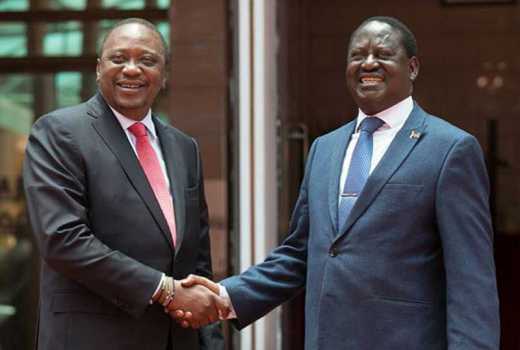
Events leading to the now famous handshake between President Uhuru Kenyatta and Opposition leader Raila Odinga on March 9, started discreetly. They were kept so confidential that confidants to the two leaders were completely taken by surprise. Like with many other issues that the confidants were not privy to beforehand, they expressed their reservations immediately.
While a few leaders in both camps took it in their stride, others reluctantly resigned themselves to fate. However, there are those who have openly expressed their opposition to the handshake, even trying to make it look like the families of Kenya’s former presidents were ganging up to ensure that the presidency remained in their clasp.